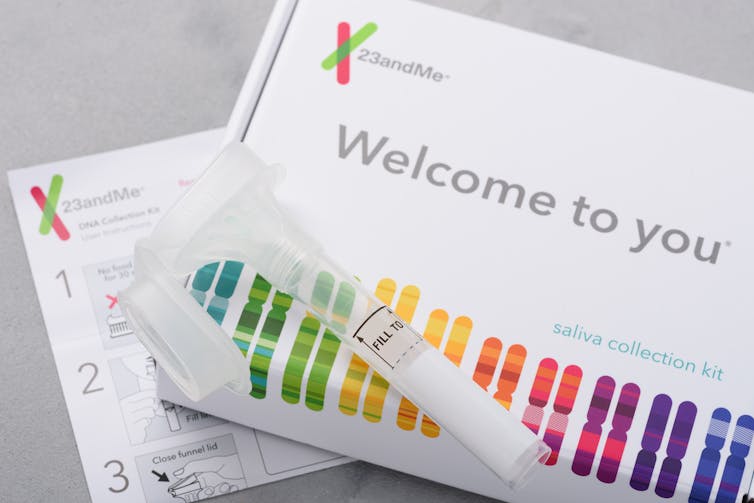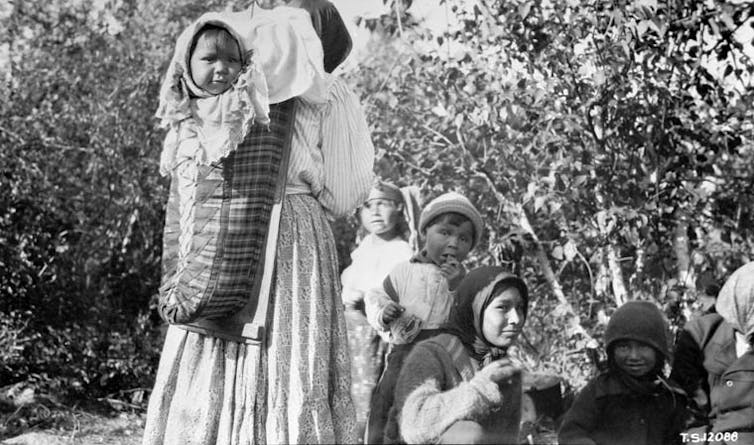It wasn’t until very recently that I heard the term “re-indigenization” used in academic spaces.
I’m familiar with Indigenous resurgence and how it’s connected to the restoration and reparation happening within Indigenous communities — work that often focuses on healing intergenerational divides caused by Indian Residential Schools and the 60s Scoop — but this idea of “re-indigenization” was different.
It appeared to justify the idea that any person who discovers they have a “root Indigenous ancestor” from anywhere between 150 to 400 years ago must claim an Indigenous identity and proudly take up spaces deemed to require Indigenous perspectives and voices.
Part of this process appeared to involve attaching and embedding oneself, not within the particular Indigenous community or Nation where their long-ago “Indigenous” ancestor hailed from, but within internal institutional Indigenous communities or organizations that fronted as “Indigenous communities” for the purpose of institutional or “urban” legitimacy.
This is a problem.
As a citizen of the Anishinaabeg Nation and community member of Nezaadiikaang (Lac des Mille Lacs First Nation), I am the Queen’s National Scholar in Indigenous Studies and an associate professor at Queen’s University, Ontario. I have been in academia for a decade now, and previously worked in various capacities serving Indigenous communities. My first full-time job after undergrad was in the political office of former Grand Chief of Nishnawbe Aski Nation Stan Beardy.
Given that my own family members have continuously held political appointments, I have been listening to Anishinaabeg articulate concepts of self-determination, nationhood and sovereignty for many years.
Indigeneity through self-indigenization
I want to address the inherent problems with indigeneity through self-indigenization or re-indigenization.
There is a connection between self-indigenization based on ancestry, and settler colonial violence that is conveniently being ignored in our public institutions.
“Mining” the archive for biological trace(s) of “nativeness” follows the same settler colonial, possessive and extractivist logic of mining Indigenous lands.
Both Indigenous lands and identities are positioned as resources that people are entitled to claim and own. Dakota scholar Kim Tall Bear has shown us how this practice is linked to Eurocentric concepts of “identity” that privilege individualism and inherited property.

Within settler colonial concepts of property rights, identity becomes something that can be claimed, owned and put to use. It is interesting to see many of my colleagues publicly reject extractivist pursuits like pipelines while remaining silent or uncertain about similar tactics employed against Indigenous personhood.
The rush to “indigenize”
While it is widely acknowledged that Indigenous identity can be complicated given the decades of ongoing colonialism, the move to conflate ancestry with indigeneity is an entirely different issue that is on the rise in universities and other public institutions.
The issue is that in their rush to “indigenize,” universities have created the conditions whereby someone who has mined the genealogical archives can access a position reserved for an Indigenous person, displacing those of us who are connected to and claimed by a living community/Nation of people.
This phenomenon undermines the inherent sovereignty of Indigenous Nations who have the right to determine who does and does not belong to their communities.
Read more: Stolen identities: What does it mean to be Indigenous? Don't Call Me Resilient Podcast EP 8
When Indigenous folks push back against self-indigenization or re-indigenization, they receive considerable backlash that in many ways distracts from the key issues at hand.
We are often accused of being caught up in divisive blood quantum requirements. The irony, of course, is that I have yet to hear any Indigenous critic of the extractivist logic even mention “Indian status” or “blood quantum” in their arguments.
The only ones who seem obsessed with “native blood” are those whose entire claim to indigeneity is based on them locating someone in their genetic or ancestral history.
I recently heard arguments that self-indigenization is a moral, ethical and traditional process that brings us out of the colonial shackles of the Indian Act. But erasing or ignoring the reality of the Indian Act, and of Indigenous survival in the face of it, does not magically bring about decolonization.
Indigenous Peoples settled that argument when they rejected Pierre Trudeau’s infamous White Paper more than 50 years ago.

Re-casting oneself as Indigenous
The problem with re-inventing oneself as “Indigenous” is based on the same logic of possession and fantasies of entitlement that rationalized settler possession of Indigenous lands.
Embracing your “Indigenous roots,” re-casting oneself as Indigenous and thinking that this is the best way to account for your history or to help Indigenous Peoples is not supporting Indigenous sovereignties or the movement toward decolonial futures.
In her new book, Red Scare: The State’s Indigenous Terrorist, Lenape scholar Joanne Barker uses the term “kinless Indian” to describe how individuals whose initial claim to indigeneity stems from a false, tenuous or distant ancestor, and how this claiming absolves the notion that they have any benefit from or complicity with the dispossession of, and violence against, Indigenous Peoples.
Drawing on the work of Métis scholar Adam Gaudry, Barker clearly articulates how this process of individual or collective Indigenous “re-invention” undermines Indigenous self-determination and sovereignty, as it reflects this idea that Indigenous communities and their respective governance systems did not survive colonization.
It is very clear that we are not facing an Indigenous identity crisis in public institutions. Indigenous Nations have always maintained their citizenship orders. They have always retained the right to determine who does and does not belong. We know who we are.
What we are facing has been, and continues to be, a settler colonial crisis, which under its current guise, seeks to replace us.
Disclosure statement: Celeste Pedri-Spade, Associate Professor & QNS in Indigenous Studies, Queen's University, Ontario,does not work for, consult, own shares in or receive funding from any company or organization that would benefit from this article, and has disclosed no relevant affiliations beyond their academic appointment.























No comments:
Post a Comment
Please: Share your reaction, your thoughts, and your opinions. Be passionate, be unapologetic. Offensive remarks will not be published. We are getting more and more spam. Comments will be monitored.
Use the comment form at the bottom of this website which is private and sent direct to Trace.